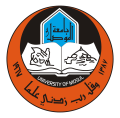MOSUL TIME RADIO
A source in the Iraqi North Oil Company reported on Friday that there is a move to increase production by 50,000 barrels per day to cover the needs of the Baiji refineries.
The source reported, “The Minister of Oil, Hayyan Abdul-Ghani, directed the North Oil Company to raise its production to the highest levels, as it is currently limited to 350,000 barrels per day from Kirkuk oil fields, and this quantity does not meet the needs of the Baiji refineries, whose production capacity exceeds 350,000 barrels per day.” ” The one .”
He added, “The company has completed the work of replacing pipelines for transporting crude oil from Butma Station to Ain Zala Station in the Nineveh Oil Fields Authority, with exceptional efforts to increase production, develop our oil fields, and facilitate the smooth transportation of crude within the operating stations .”
The source confirmed that “the immediate plan that the company is working on is to add 50,000 barrels per day from Nineveh fields .”
A source in the company reported last Monday that technical and engineering crews had restored life to an oil well in the “Butma” field in Nineveh, indicating that they were working to raise the field’s production to 10,000 barrels per day .
The source indicated, “An engineering and technical team has begun preparing a plan to develop and raise the capabilities of oil fields throughout Nineveh Governorate for the purpose of increasing production, supporting the national economy, and supplying the state treasury with funds .”
In this context, oil expert Ali Khalil explained “Ain Zala field was discovered in Nineveh in 1939, and in 1953 the Batma oil field was discovered, and after 2003 a number of oil sites were explored in Nineveh as part of oil licensing rounds .”
He continued, “Four oil fields are being developed by the Federal Ministry of Oil: the Sasan fields near Badush, the Allan fields near Al-Ayadiyah, west of Nineveh, and Qasab and Jawan, south of Mosul. As for the fields being worked on, they are Al-Qayyarah, Najma, Ain Zala, Butma, and Sayfa. ” .
He stressed that “the Mosul oil fields were discovered in December 1932 by Iraqi, Italian, British, German, French, Dutch and Swiss companies, and their investment was made by these companies in exchange for mortgaging the oil at a rate exceeding 50%. At that time, 71 wells were discovered and only 27 wells, 10 of which are giant, produce oil at different levels .”
The oil expert pointed out that “doubling interest in Nineveh fields could raise production to more than 500,000 barrels for the North Oil Company, meaning that Nineveh fields have the capacity to produce 150,000 barrels per day.”






